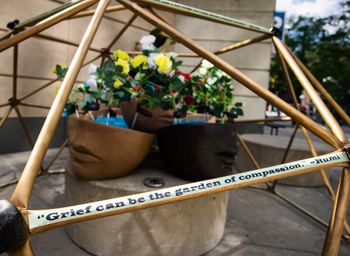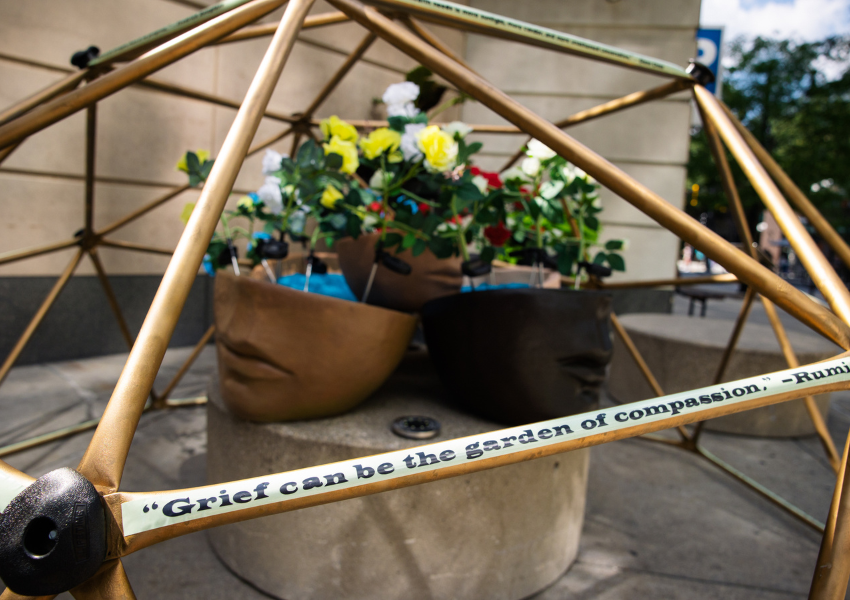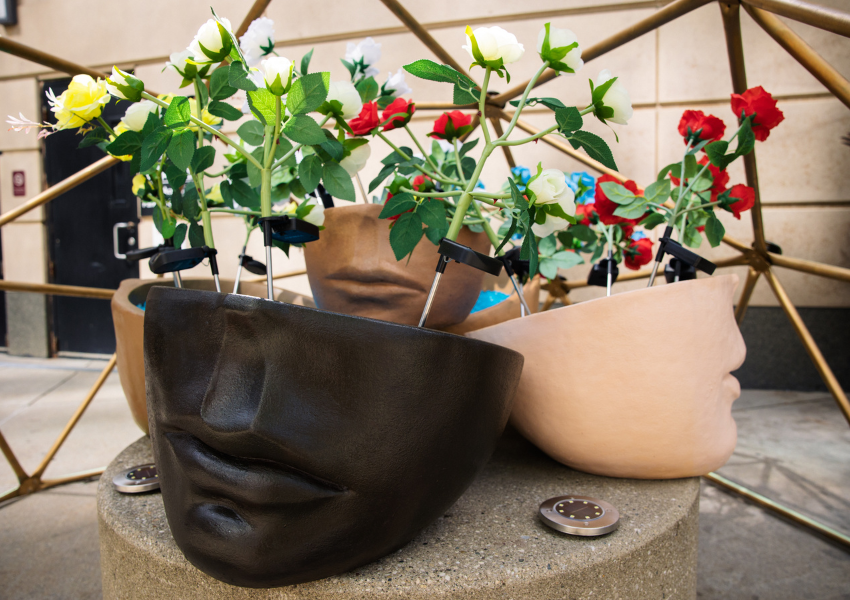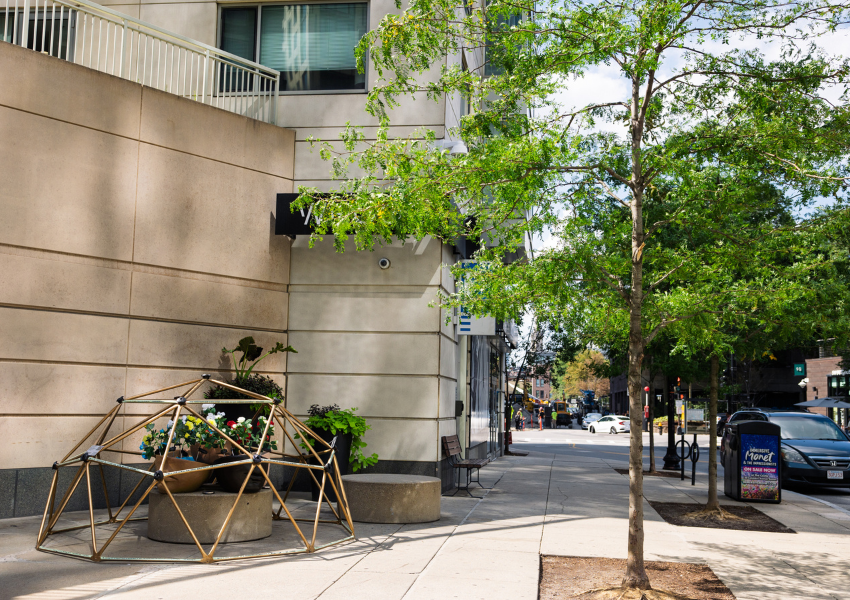Healing Garden | Ngoc-Tran Vu | Be the Change Boston 2022
Published Mar 23, 2023

Healing Garden

Artist Statement:
This piece is inspired by a peace/healing garden. Amidst all that’s happening in our communities and the world surrounding the pandemic and mental health struggle, the need for healing and renewal is more urgent than ever.
For my partner, I collaborated with a collective of lightworkers and learners called Connecting Vietnam. I have been connecting with them on issues of healing and reconciliation on war, trauma, and memories. We are working on the theme of journeying and pilgrimage and so I am interested in co-facilitating a virtual event to share our experiences and modalities of holding space.
Ngoc-Tran Vu (she/her) is a 1.5-generation Vietnamese-American multimedia artist and organizer whose socially engaged practice draws from her experience as a cultural connector, educator, and lightworker. Tran threads her social practice through photography, painting, sculpture, and audio so that her art can resonate and engage the audience with intentionality. Her work evokes discourse of familial ties, memories, and rituals amongst themes of social justice and intersectionality. She is an adjunct faculty in Asian American Studies at the University of Massachusetts Boston. Tran works across borders and is based in Boston’s Dorchester community.
Be the Change Walking Tour Recording: Ngoc-Tran Vu
(1 min) Listen to Ngoc-Tran Vu describe her piece for the Be the Change Walking Tour.
Discussion: Mental Health and Environmental Justice
(1 hour 10 min) An online discussion featuring 2 of the 6 Boston-based Be the Change artists, Tran Vu and Carolyn Lewenberg, in conversation with leading experts Rabbi Jennie Rosenn and Dr. Deborah Korn, Rabbi Rachel Saphire, and Ruth Messinger.
Rabbi Jennie Rosenn is the Founder of Dayenu, an organization dedicated to building a movement of American Jews confronting the climate crisis.
Dr. Deborah Korn is an internationally renowned trauma therapist and author of a new book, Every Memory Deserves Respect.
Rabbi Rachel Saphire of Temple Beth Elohim, Wellesley, MA, is the first rabbi in Boston to rip the veil off the stigma of mental illness with a highly noted Yom Kippur Sermon.
Ruth Messinger is the former President and CEO of American Jewish World Service and an icon of the social justice movement.
Healing Garden

Above: A closer look at Healing Garden.
Healing Garden

Above: Healing Garden publicly on view on the street in Boston.
Learn more about Be the Change and check out other work from Be the Change Boston 2022:
Our Family Tree – Jason Talbot
Vital Organs – Carolyn Lewenberg
It’s Giving – Sam Mendoza Fraiman
Prisoner a-7713 – Caron Tabb
Zoongide’e – Nayana LaFond
JArts’ mission is to curate, celebrate, and build community around the diverse world of Jewish arts, culture, and creative expression. Our vision is of a more connected, engaged, and tolerant world inspired by Jewish arts and culture.
Reflections
Let's talk about mental health:
1 in 5 U.S. adults experience mental illness each year. Yet, there is a lot of stigma surrounding mental illness.
Do you or someone you know struggle with mental illness?
What are the best ways to eradicate the stigma around mental health issues?
Others' judgments almost always stem from a lack of understanding rather than information based on facts. Learning to accept your condition and recognize what you need to do to treat it, seeking support, and helping educate others can make a big difference.
Mental illnesses include many different conditions that vary in degree of severity, ranging from mild to moderate to severe.
According to the World Health Organization, In the first year of the COVID-19 pandemic, the global prevalence of anxiety and depression increased by a massive 25%.
How did the pandemic impact your mental health and those around you? Are you seeking help? Why or why not?
Are you aware of some of the harmful effects of stigma?
- Reluctance to seek help or treatment
- Lack of understanding by family, friends, co-workers, or others
- Fewer opportunities for work, school, or social activities or trouble finding housing
- Bullying, physical violence, or harassment
- Health insurance that doesn't adequately cover your mental illness treatment
- The belief that you'll never succeed at certain challenges or that you can't improve your situation
There are many ways we can all act to end the stigma around mental health. What steps could you take today?
- Get treatment
- Don't let stigma create self-doubt and shame
- Don't isolate yourself
- Don't equate yourself with your illness
- Join a support group
- Get help at school
- Speak out against stigma
Want more?
Get curated JewishArts.org content in your inbox


